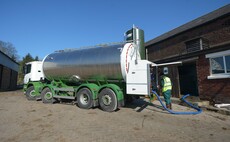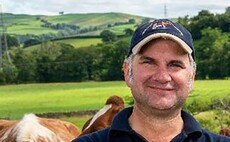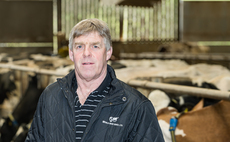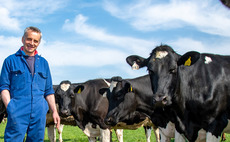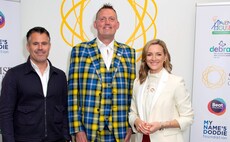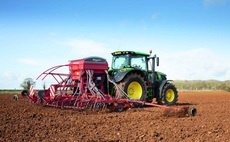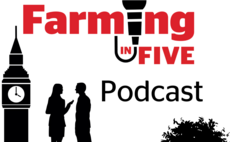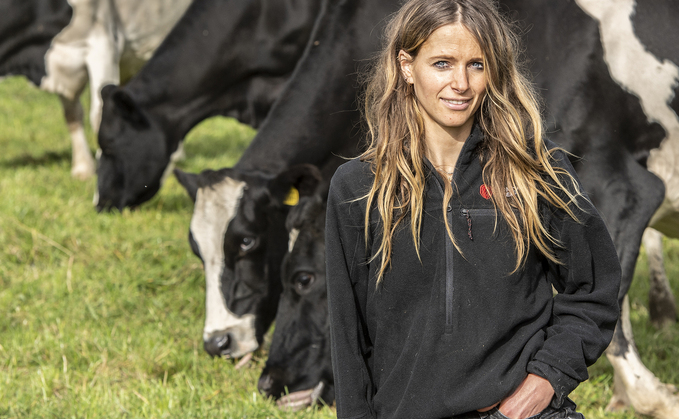
Having fallen in love with the industry, Sophie Gregory's mission is clear: Farming is a great place to work, and everyone should have access to it.
Farming on the Dorset/Devon border near Lyme Regis, Sophie and her husband, Tom, are organic dairy farmers. For Tom, farming has always been his passion, but for Sophie, it was something she took a risk for.
It was certainly the right decision though, after formerly training as an accountant.
Farming across 567 hectares (1,400 acres), she is passionate about the sector and through social media, her current Nuffield Scholarship and education and charity work, showcasing her views on the organic sector and career opportunities are at the forefront of all Sophie does.
LISTEN NOW: The Íæż½ã½ã podcast: Sophie Gregory - organic farmer and Nuffield Scholar talks all things dairy
Organic farming
Sophie and Tom have always farmed organically, more so because it ‘suited the farm' and, as Arla farmers, they were part of the cooperative's regenerative farming pilot.
"There are eight farms in the UK trialling different things — we meet up twice a year and, as a European group, twice a year," says Sophie.
"My husband is leading our [trial] which is composting our farm manure.
"It is quite a wild farm; there is a lot of nature here already and [it is] low input.
"We have been growing herbal leys for quite a while and have been using clover too – it is really good for the soil."
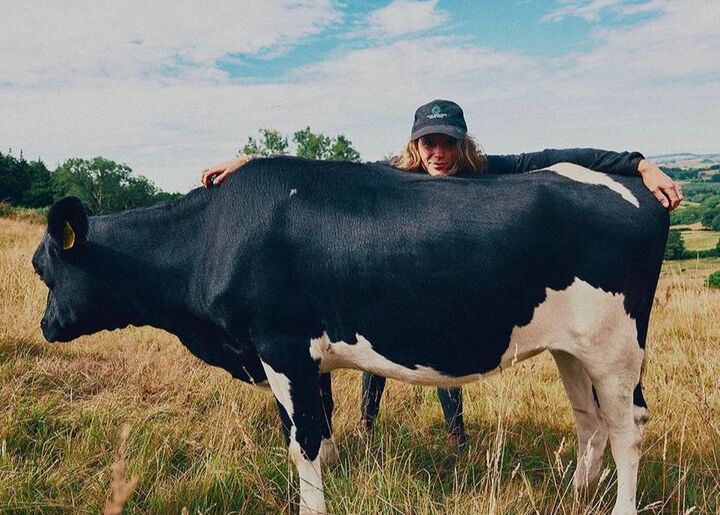
Nuffield farming
Her current Nuffield Scholarship is an extension of her love for organic. It is titled: What is the future for organic dairy farming?
She wants to research into successful – and unsuccessful – organic dairy markets in other countries, while exploring how to really connect to the consumer.
The goal, she says, is to find something that will impact her own business as well as the organic sector.
"We are struggling as an organic dairy farm," she says.
"Consumers do not really understand what [organic] means and whether it warrants them paying extra for it on the shelf. They are confused about what they are paying for.
"It is different in other countries, so how do we bring that back to the UK?
"Sri Lanka brought organic in overnight and it destroyed the economy; it is the obvious one to see where it went wrong.
READ NOW: Meet the new Nuffield Scholars: How are they hoping to change the future of farming?
"India has a huge volume of organic, partly because they are small scale.
"Taiwan is 25 per cent organic and there is a huge policy around getting to 50 per cent, but there are huge subsidies around it and they see organic as the environmental solution.
"I will be going to America because organic dairy means something different there — if you had a pizza with an amount of organic produce on it you can call it organic."
Milk sales, she says, are ‘pretty stagnant'. Couple post-covid life with the cost of living crisis and it is no wonder consumers are shopping differently.
But she does believe consumers want the story and they need to know more – they are aware of no chemical or fertiliser use, but what else do they get from organic?
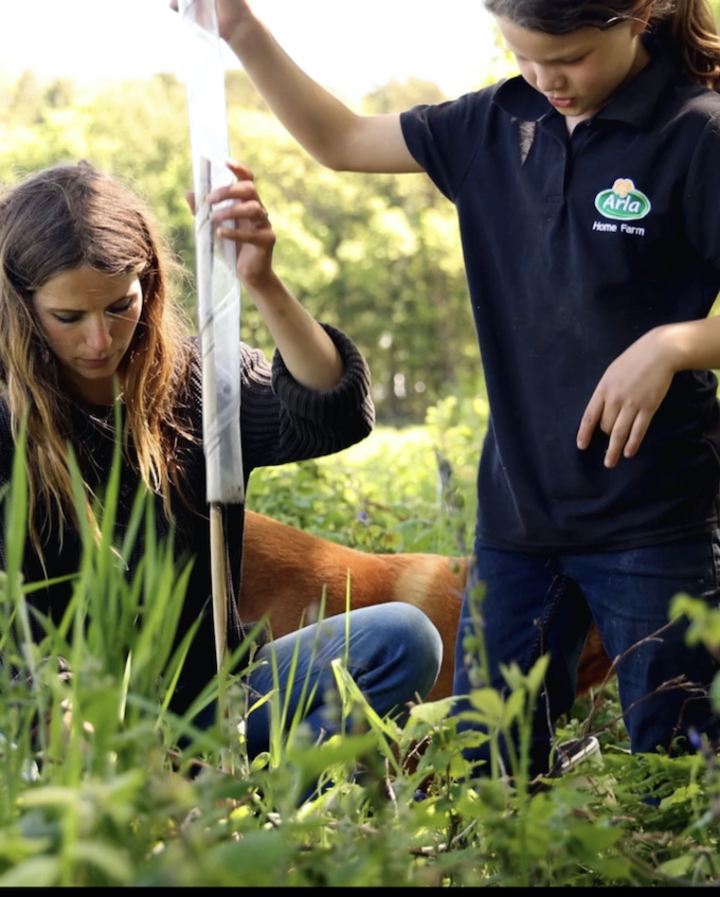
Farming policies
The other looming question is, does the sector need more support in terms of policies?
She says: "Denmark and Sweden have a really successful dairy industry – their aim is 30 per cent organic.
"60 per cent of food service has to be organic in Denmark and they hope this will lead to people buying it for their homes.
"They have a budget range organic, a middle range and high, and it is very accessible.
"In the UK it is like a premium brand which puts people off; that is how shoppers associate it and people think it is not for them."
On Instagram, she is making waves as ‘The farmer in training'.
With almost 13,000 followers, what began as a way to document what she was learning, quickly became an educational platform for others.
And she says her followers are split — 50 per cent are farmers, 50 per cent are not.
READ NOW: Pedigree Limousins add value for Yorkshire Dales farming family
Her latest ‘skimming the cream' series has seen her delve into the people behind the sector, all of whom help to bring you a pint of milk – think accountants, farm advisors, agricultural bank managers.
"The aim is to illuminate the jobs that are not visible, but that play a crucial part in our dairy journey," says Sophie.
"It seeks to showcase the diverse career opportunities within our industry, shining a light on potential pathways for the next generation.
"It is a great career and it can be really well paid, but people underestimate that."
Charity
Sophie is part of a charity called Discover Farming. A multitude of people fund it and it sponsors scholarships for those who want to study agriculture at university or want to take a year out and do a course.
They also put events on at shows, where everyone brings their own thing to their tent, which is focused on careers in farming.
She has recently secured a Farming in Protected Landscapes grant to help her convert some old buildings into a classroom on-farm.
She says: "Some of these kids are not used to being outside, so it is a 50 per cent grant towards that and it will be done this year.
"The education system is not set up for every child.
"They should know that agriculture can be a career. I had no idea I could be a farmer, I thought it was just if your grandpa or dad was in farming.
"But it is also about learning where your food is from; we have to see it as a bigger thing than just what is going in people's mouths, it is about the health of the country.
"So many people are obese and have health conditions — some of this could be changed by learning where your food comes from and how to cook a good meal.
"It is for farmer-to-farmer meetings too. We host farm walks, and it will become a hub of the farm."
Sophie has a young team working at the farm alongside her — some whom have come from social media, and the difference of everyday is something she enjoys.
"I cannot imagine doing anything else at four in the morning," she says.
"The people in the industry are so supportive and I do not think it has been as exciting as this for a long time.
"It is hard work and tiring, but 99 per cent of the time I love my job."








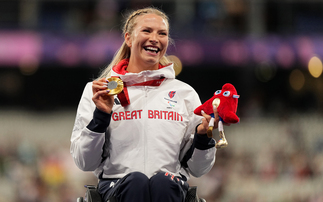
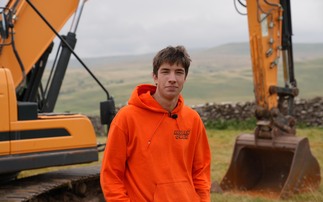
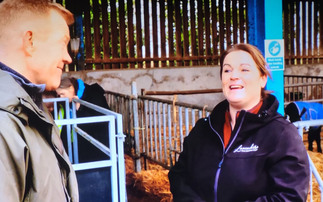
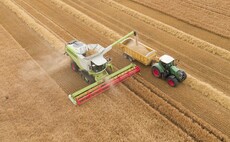
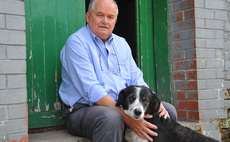
![Phil Latham: "Our industry seems to have little value for the Labour Gov and [therefore] I am increasingly worried about the USA's new tariff regime"](https://image.chitra.live/api/v1/wps/d12d03c/cad55df7-5c0d-452d-949d-1c7d39739842/1/PHIL-LATHAM-6337-230x142.jpg)
